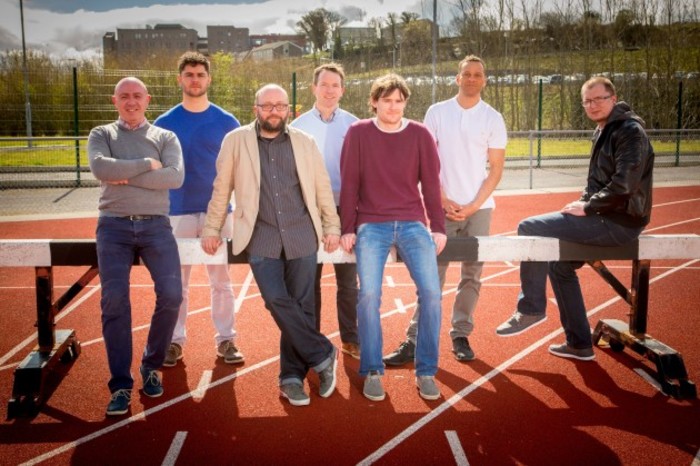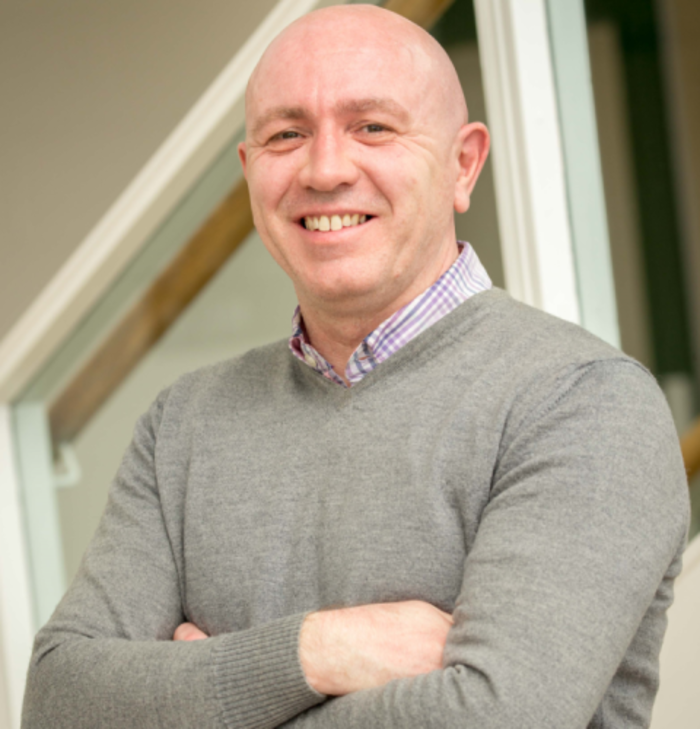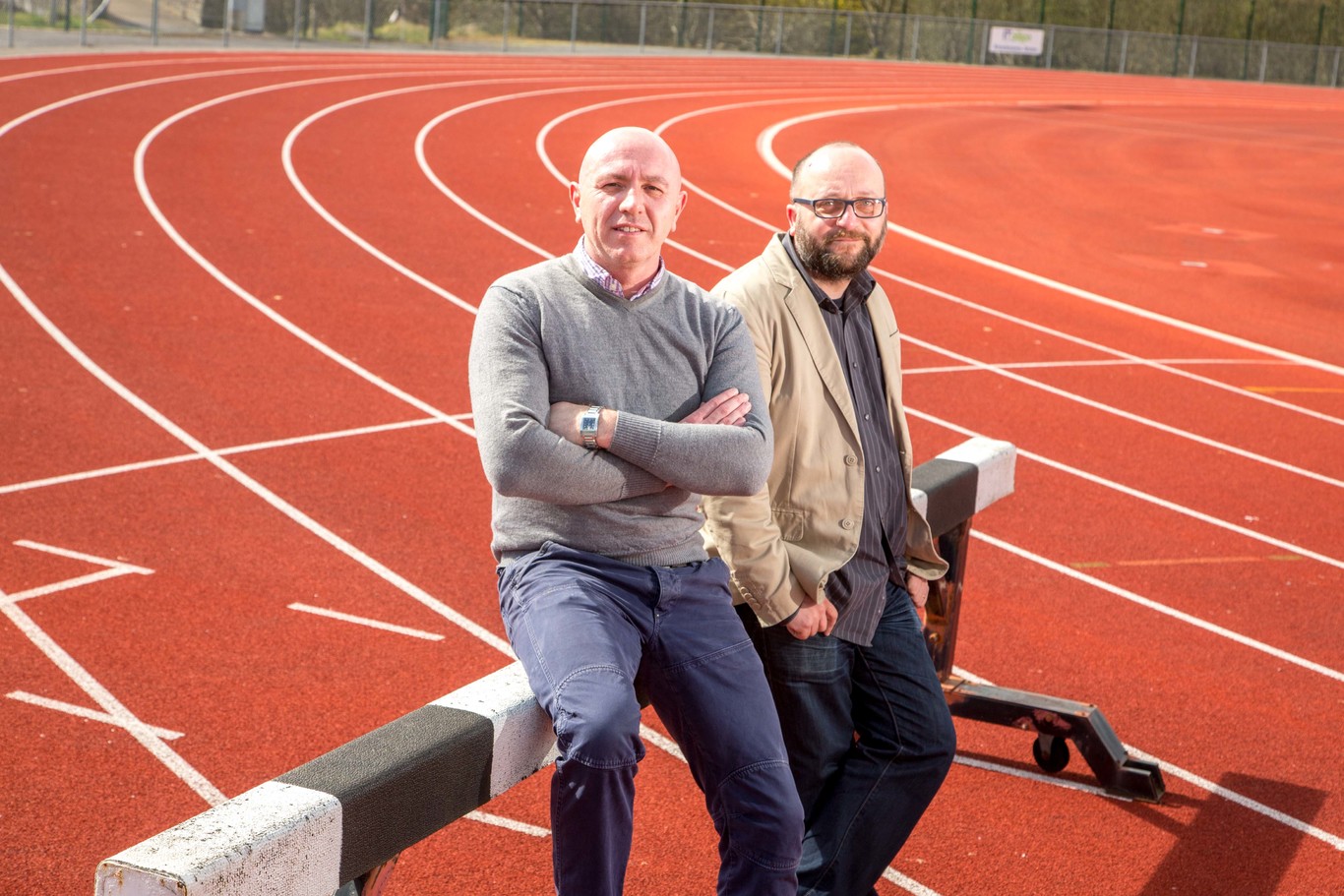'The shop was too reliant on me. If I was away, people would come but wouldn't buy anything'
After being let go three times in two years, this former phone shop owner is back running his own business.
I GOT MY first taste of entrepreneurship in my 20s when I stumbled across an opportunity in the mobile phone market.
I saw that the excess second-hand mobile phones in the UK were worthless unless you took them out of the country.
So I established a business that imported used mobile phones into Ireland at a time when your doctor and solicitor were the only people who had a mobile phone. It was just the crest of the wave basically.
I opened some mobile phone outlets in Sligo town and ran them up until the early 2000s during a time when the independent retailer controlled the market.
But it got to a stage where the networks were able to say “jump” and we had to say “how high?” Eventually I had to make a decision to expand or sell up.
I went for the latter option because growing wasn’t as feasible for me. The problem I had was people came to me, not the shop, to buy the phone.
They wanted my advice and assessment of what their needs were and not from anyone else. It meant I ended up talking to lots of customers before passing them over to my assistant to sign them up because I would have to move onto the next person.
It became all-consuming, and I wasn’t able to step into the background or even take time off. If I was away for a week, people would come in, but they would wait until I came back to buy a phone. It meant less business got done when I was away.
It was very time-consuming and virtually anywhere I went in the town I was stopped. If I was buying something at a counter, people would ask how to send a text message or how does the phone signal work.
That’s one mistake I made. You need to be able to separate yourself from the business and delegation is the one key lesson I’ve carried through my career.
As a chief executive, you need to be a jack of all trades, but also need to be able to leave the responsibility for sales with someone, trust the marketing with someone else and the tech development with another.
 The KudosHealth team
The KudosHealth team
Hunting for another idea
I took an offer from another independent retailer in Cavan that had multiple outlets around the country and got out of the mobile phone business.
I took some time after that to reassess my situation and explore if I had a business idea worth pursuing or if a career opportunity was available.
During that time I’d wake up during the night thinking about ideas here and there, go off and research them a bit and find it’s a non-runner or that I couldn’t do it any better than what was already being done.
After the six months, I took a position with the Bank of America which ran a call-centre operation in Carrick-on-Shannon.
The company was relatively new in Ireland, so you could move up the ranks quickly, but I also thought that credit cards was a global enterprise to tap into. I figured if I wanted to do that or find something to explore in that sector I should really be in it.
I planned to do the job for 12 months, but I ended up staying for eight years. I didn’t hit on another good idea – also the money was good, so I got comfortable.
In Bank of America I got onto a scheme that was developing future leaders of the organisation, so we moved around various areas of the business to get to grips with the company.
Then the financial crisis came along in 2008 and the company announced a freeze on positions. It meant we were left in an awkward position – we knew we weren’t actually vital to the business, we were a bit of a luxury at the time.
We knew the axe would come down pretty soon if we didn’t get out of the jobs, but we couldn’t get out and there were no jobs being posted internally.
Focusing on positives
We managed to keep our heads above water until 2011 when we were eventually made redundant.
First thing you do is panic. Since I was in the north-west of Ireland, you’re thinking, “There’s not many opportunities out there.”
But coming up to my last day, I got a job in another company and started two weeks later in a marketing and merchandising company that was two minutes from my house. I took a cut in money, but I landed on my feet.
I was at that company two years until it started to downsize a little bit, and it was a case of last in, first out.
I was on the block again, back in the jobs market and it took six months again to get my foot in the door of a new place – this time with a startup company in Sligo IT which had an idea for a business around rewarding young drivers for driving safely.
I felt like I had landed on my feet again. I was tasked with building a global sales team, but within two months the company ceased trading and I was back out on my own again.
At that point you do start to think, “Is it me that’s the problem?” But you have to keep looking at the positives in that situation and think how you can get something out of it. In this instance, the positive was meeting my latest business partner, Mario Gheghici.
He was in that Sligo IT-based startup for four or five months and moved his family from Malta to take up the position – his scenario was a bit more bleak than mine.
So I told him about an idea I had that was similar to what he came over to Ireland to work on, except this new concept focused on rewarding fit people with cheaper health insurance instead of car insurance.
That’s where my latest company KudosHealth has spun from – a negative experience that we made the most of.
We set that business up around the end of 2015, started fully researching the idea and met with some of the main health insurance companies.
From talking to those companies, we figured out that a model with the big health-insurance providers as our main customers wasn’t the right approach – we were a bit ahead of the game.
So we went after another aspect of the idea in our heads, which involved targeting corporate health. We spun the company on its head and developed a tool that helps firms engage employees of various fitness levels in long-term health initiatives.
We learned a lot from the mistakes the car insurance startup we were in made when we were tweaking our model as well. I’m a big believer in not only learning from your own mistakes but also picking up on where others slip up as well.
 Declan Trumble
Declan Trumble
Long-term goals
In a short time, we have secured some big corporate clients and it hasn’t been a difficult pitch. These big corporates are already out there spending lots of money on health initiatives and are always looking for new tools.
In the near future, we’re obviously looking for more big customers but are mainly focused on developing additional features that existing customers would like to see.
We want to start securing some sales in the UK as well, and within the next three years we would also like to be running in other European markets and also the US – and there are a few other countries we’ve highlighted.
Our long-term goal, however, is to develop a score that companies can use to get a rating on the level of their employees’ health, fitness and overall happiness.
We see it as another number that could be included in a company’s annual report or could contribute to an organisation’s valuation.
There are a number of medical and health applications we have to work into our system to get to that point, but it’s one of the main goals we have written up on the wall.
Achieving that would hopefully put us in a good position for a trade sale in the next five years – we won’t hold onto this business forever.
We will look for some large investment next year, push it out to a huge scale and then target some kind of takeover.
And if that day comes, I have a few other ideas spinning around in my head that I would like to try some day. But for now, this is my focus.
Declan Trumble is the co-founder of KudosHealth. This article was written in conversation with Killian Woods as part of a series on business mistakes and what can be learned from them.
If you want to share your opinion, advice or story, email opinion@fora.ie.






